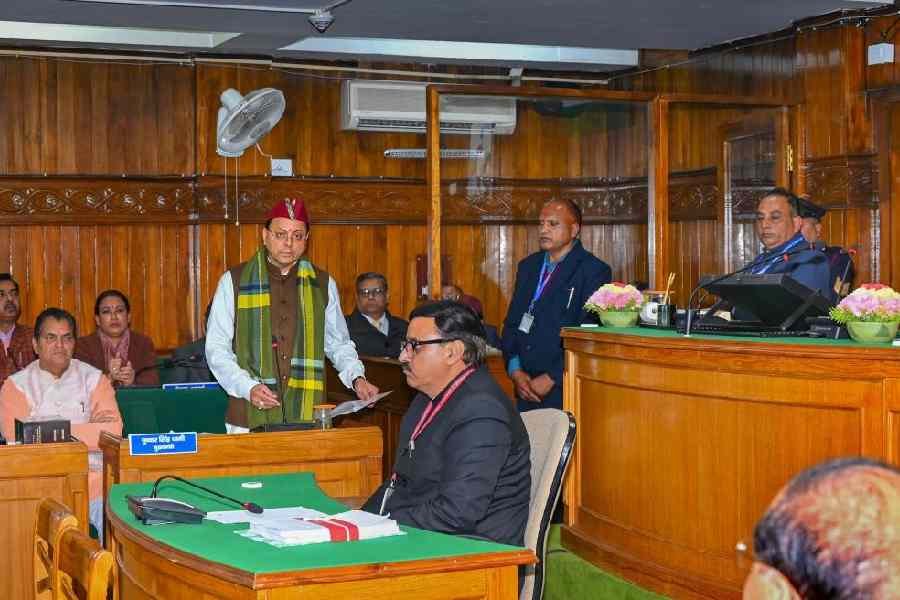
Uttarakhand has emerged as the pioneering state to enact the Uniform Civil Code (UCC) bill, marking a significant milestone in Indian legislative history and potentially catalyzing similar actions in other BJP-ruled states. The UCC bill, which aims to establish a uniform set of laws applicable to all citizens regardless of religious affiliation, garnered praise from Chief Minister Pushkar Singh Dhami, who hailed the legislation as a long-awaited demand fulfilled.
Chief Minister Dhami expressed gratitude to the members of the legislative assembly and the people of Uttarakhand for entrusting his government with the responsibility to pass the bill. He underscored the bill’s commitment to gender equality and empowerment, emphasizing its potential to eliminate discrimination, particularly against women, in matters of marriage, inheritance, and divorce.
The UCC bill’s passage in Uttarakhand signals a proactive approach towards legislative reform and reflects the Bharatiya Janata Party’s (BJP) commitment to its ideological agenda. Rajasthan has already indicated its intention to introduce a similar bill in its forthcoming assembly session, suggesting a broader momentum within BJP-ruled states towards implementing uniform civil laws.
Despite initial opposition’s calls for further scrutiny through a select committee, the bill cleared the assembly, setting the stage for gubernatorial approval. Once endorsed, Uttarakhand will stand as the first state post-independence to adopt a comprehensive legal framework governing personal matters such as marriage, divorce, land ownership, and inheritance, transcending religious boundaries.
Chief Minister Dhami reassured stakeholders that the UCC remains open to future amendments to accommodate evolving societal needs. However, he clarified that the bill’s scope excludes provisions related to population control measures and the rights of Scheduled Tribes, reflective of the state’s demographic profile and constitutional imperatives.
The passage of the UCC bill assumes added significance against the backdrop of impending national elections, aligning with the BJP’s broader policy agenda and electoral strategy. While proponents laud the legislation as a step towards social cohesion and legal uniformity, critics, such as Prakash Ambedkar, grandson of BR Ambedkar and leader of the Vanchit Bahujan Aghadi, caution against potential constitutional conflicts and the need for comprehensive deliberation on religious freedoms enshrined in the Constitution.
As Uttarakhand paves the way for a unified legal framework, the debate surrounding the Uniform Civil Code intensifies, reflecting the complex interplay between legal, religious, and societal considerations in shaping India’s legal landscape.
Sources By Agencies

